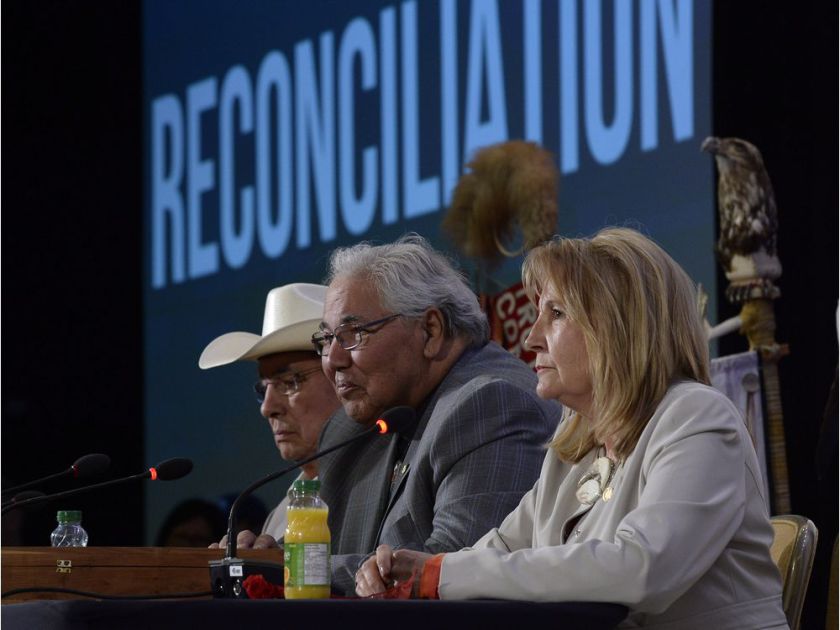According to Patrick Mascoe‘s recent opinion piece, acknowledging Indigenous territories is a meaningless and patronizing gesture that only has the “power to erase white guilt and restore Indigenous pride.” Backed by the opinion of an Algonquin scholar and sound bites from the prime minister, Mascoe notes that actions, not words, are the only way to achieve reconciliation. As such, acknowledging Indigenous territories is only adding to the problem that First Nations people face in this country.
Mascoe is correct in criticizing the hypocritical and meaningless rhetoric of Canadian governments, but in completely disregarding his part in the injustices faced by Indigenous Peoples, he misses the significance of territorial acknowledgements. If others like Mascoe believe that land acknowledgements are empty, then we should give them substance by embodying Indigenous legal traditions.
It is true that territorial acknowledgements have existed for hundreds (if not thousands) of years. They did not, however, exist for the sake of acknowledgment. Instead, they were a part of a broader legal system that upheld territorial orders and respected the autonomy of distinct nations. Georges Sioui, a Huron-Wendat historian and philosopher, has outlined in his publications the respect given to territorial rights by Indigenous Peoples regardless of how strong – or weak – the inhabitants were. Land acknowledgements then, were (and are) the means to uphold the territorial rights of distinct nations. This principle was embedded within inter-national treaty processes that existed long before the arrival of settlers. Even Lynn Gehl, the Algonquin scholar whom Mascoe uses to justify his opinion, also writes about these treaty processes, which she calls “wampum diplomacy.”
But who cares? After all, Mascoe doesn’t “owe anyone an apology” nor has he “ever taken anyone’s land.” Yet this type of attitude sweeps the continued dispossession of Indigenous Peoples from Indigenous lands under the rug. Land dispossession is what Indigenous People speak of when they speak of colonialism.
I speak to this not to enact guilt on a Canadian settler-state society, but to show that systems of dispossession are still active today. People cannot care for their territories if they are locked up or taken away from their homes, and Canada has admitted its fault in the upkeep of these systems.
Mascoe, however, does not do the same. Instead, he places the blame on the emptiness of land acknowledgements, and claims that unless the talking stops, he will become so desensitized that he will no longer care about the plight of Indigenous peoples.
Land acknowledgments are neither meaningless nor patronizing if they embody Indigenous legal traditions, and people like Mascoe need to own up to this reality.
Ashley Courchene is a Master’s student in the Law and Legal Studies Department at Carleton University. He also sits as the Ontario Chair for the Circle of First Nations, Inuit, and Metis students at the Canadian Federation of Students. Twitter: @AshCourchene
The story is from The London Free Press and a copy of their story can be found here on the link.
https://lfpress.com/opinion/columnists/courchene-heres-why-acknowledging-indigenous-territories-matters/wcm/e7ef4aec-b5b3-42a4-bc28-0dd27639ba0e

